Success stories from 2021: Confronting vaccine sceptics
How putting in the effort with some of the more ardent vaccine sceptics out there has paid off. Never give up on anyone.

Hello everyone, wanted to start the year off with some positive news and reflect on last year's little success stories.
Over the holidays I was up in Tāmaki Makarau visiting whānau and friends whom I hadn't seen in 2 years. It was a lovely catch and I really enjoyed visiting that city again. A city which had endured the world's longest lockdown at 4 and a half months last year. Auckland has a >95% immunisation rate and I tell you what, it's palpable. People are so friendly, patient and compassionate. The vax debate doesn't happen unless it is about when to get the next booster. It really warmed my heart to witness this city evolving from what I used to criticise as being a place where the rat race was front and centre stage, to a much more humble and understanding collection of individuals, all just trying to do the right thing.
I spent two whole weeks in a comparative nirvana where I didn't have to have the vaccine debate with anyone and my brain really needed it. Before this I had hosted an immunisation seminar with the the indelible Anna Dean for FACT Aotearoa (Fight Against Conspiracy Theories) - I also joined a radio discussion with Grant Knowles and penned eight long form articles addressing the pandemic and our need to get vaccinated as a nation to prevent our fledgling healthcare infrastructure from buckling under the pressure.
I also spent a number of days on the telephone talking to concerned parents about vaccinating children and meeting up with small sceptic groups who were on the fence. I would say I had about a 70% success rate in convincing people, so that was a mini win.
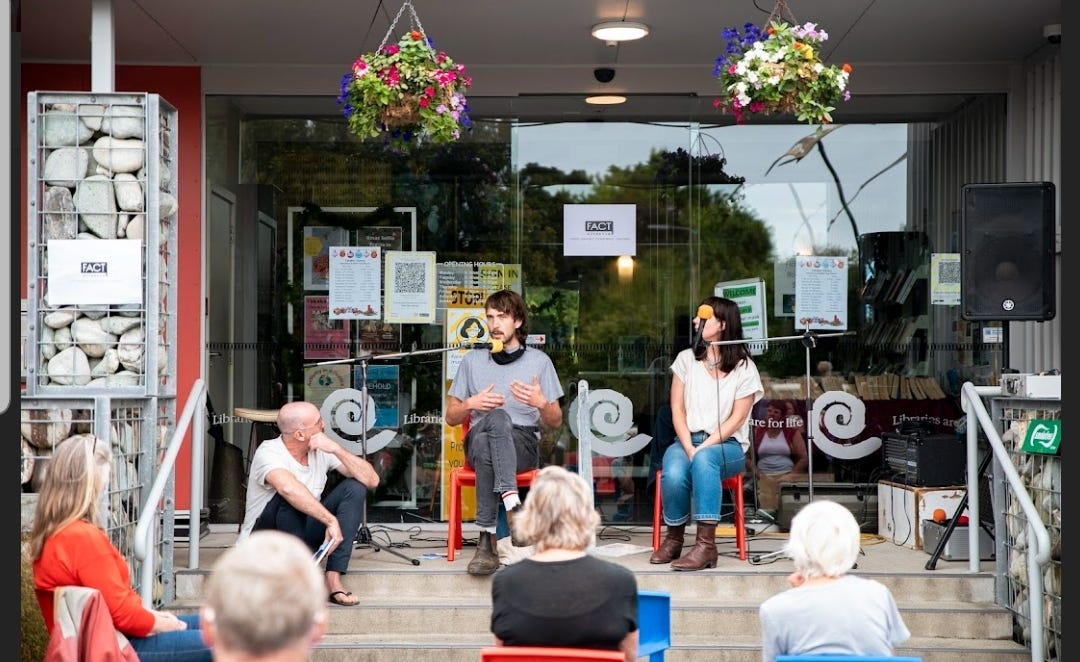
After my talk at the Tākaka library I had a teary eyed St John's Ambulance driver come up to me to thank me for making her job easier whilst surreptitiously handing me a $20 note.

When I got back to Golden Bay my home, the paradox in attitudes was overwhelming and the contradiction couldn’t be more pertinent. I was asked to hold another smaller talk with concerned “antivax citizens” as well as several one on one talks. It was exhausting, coming back from New Zealand's largest city that had nearly been 100% vaccinated to a community in Golden Bay that boasted the lowest rates at around 65%.
Perhaps rather counter-intuitively, this morning I got a text from a friend up in Auckland who had been worried about getting vaccinated because of her penicillin allergy, a friend whom I had been trying to convince that the allergy wasn't connected to the covid vaccine and she said that she had been vaccinated. This sent tears streaming down my face in how happy I was for her and also showed how persistence and caring for people matters.
A collection of some of the positive responses combating misinformation about immunisation to put a smile on all of your faces
This one made me really smile.
Some feedback on the first vaccine article I wrote last August:
And of course two of my best friends from Munich and New York respectively, chiming in:
My next article will be about childhood immunisation, summarising some work that I have been putting together for the FACT website which is going live shortly.
Introducing FACT member: Dr Andrea Tritton
Here is some information about the misconception of mRNA that I worked on with fellow FACT member Andrea Tritton, head science teacher at Hobsonville Point in Auckland who’s currently writing the national curriculum on how to combat conspiracy theories through critical thinking and research:
Are mRNA vaccines gene therapy?
The premise of this argument is that by using mRNA to elicit an immune response, it somehow means it’s not a vaccine.
mRNA is part of the system that translates the language of DNA (the blueprint) into proteins. DNA is the master copy in the nucleus, whereas mRNA is literally the messenger, taking copies out from the nucleus into the cytoplasm.
mRNA is made up of slightly different building blocks than DNA, so although it can move between the nucleus and cytoplasm, it chemically is impossible for it to be incorporated into DNA or alter it in any way.
Gene therapy involves using (amazing) new techniques to permanently alter defective sequences of DNA (genes) - requiring special enzymes and a targeted way of finding just one specific location of the defective gene. This is not yet approved for human use anywhere in the world, although some sneaky human uses have happened on 1-2 occasions.
A vaccine is anything that stimulates an immune response against a pathogen before we are exposed to the entire pathogen. The form of the vaccine can come in many different ways - attenuated, using another virus as a vector, proteins alone etc. mRNA vaccines have been in development for over 20 years, but the last time they got close to market, the SARS outbreak promptly was contained, and so they weren’t needed. The mRNA vaccines simply get our cells to make a protein rather than directly presenting a protein in the vaccine ingredients. They are super simple (just a lipid coat to protect them), and easily modifiable should the coding for the (spike) protein need to be changed - which could happen eg. Omicron.
So, in summary - mRNA cannot alter DNA, therefore it isn’t gene therapy, but it still IS a vaccine because it is training our immune system with a small part of the virus, to be prepared should we encounter the entire actual virus.
Is mRNA synthetic?
Firstly, although called a synthetic mRNA, N1-methylpseudouridine is actually a naturally occurring nucleotide in our cells - but it is normally found in tRNA (transfer), rather than mRNA (messenger). It is primarily used because it reduces the triggering of immune components associated with anaphylaxis, but can also boost the translation of the viral peptide (both things we want in a vaccine).
mRNA has a very short life span (minutes to days in mammalian cells), and gets degraded by enzymes in our cells called nucleases. Because the N1-methylpseudouridine is a natural nucleotide (albeit not normally in mRNA but rather tRNA), this also gets degraded. As uridines are pyramidine nucleotides, they are broken down fully into CO2 and NH3 (urea), and therefore able to be excreted fully.
Can the mRNA vaccine be incorporated into other human mRNA
Short answer is NO - N1-methylpseudouridine can’t be incorporated into other mRNA’s, because 1. The RNA polymerase enzyme that makes mRNA’s will not recognise it as a uridine, so exclude it from the process (which is happening in the nucleus), and 2. It would get broken down quickly and so excreted from the cytoplasm of the cell anyway.
Gratitude is an Attitude
Thanks for supporting me and my Substack as it grows. It really means so much. If you enjoyed this podcast and are feeling generous and would like to support me with some funds, you can make a one off Paypal donation (or simply send the Paypal funds to chrisvonroy@gmail.com) then I would be super duper grateful. You can also support me on Patreon.
Subscribing to this newsletter will cost you just $5 a month, the upside of a subscription is not much, as I have vowed to make all of my posts free here, but you would earn that extra special spot in my heart, which I know you want to occupy. So go ahead and do it, you know you want to. You may even get a sporadic love poem from me, who knows? Anything is possible in this weird old world we live in.
Either way, thanks for all the support last year, here’s to 2022 being less weird than the last year.
“To practice five things under all circumstances constitutes perfect virtue; these five are gravity, generosity of soul, sincerity, earnestness, and kindness.”
Confucius




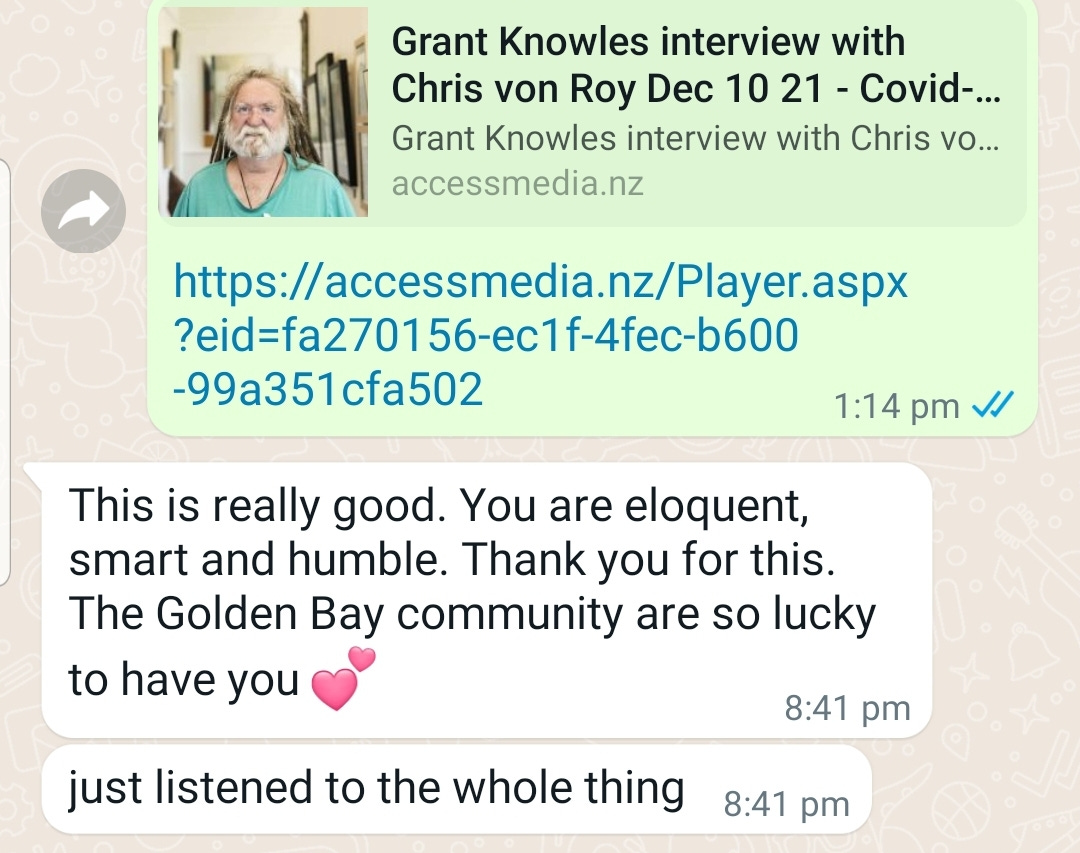



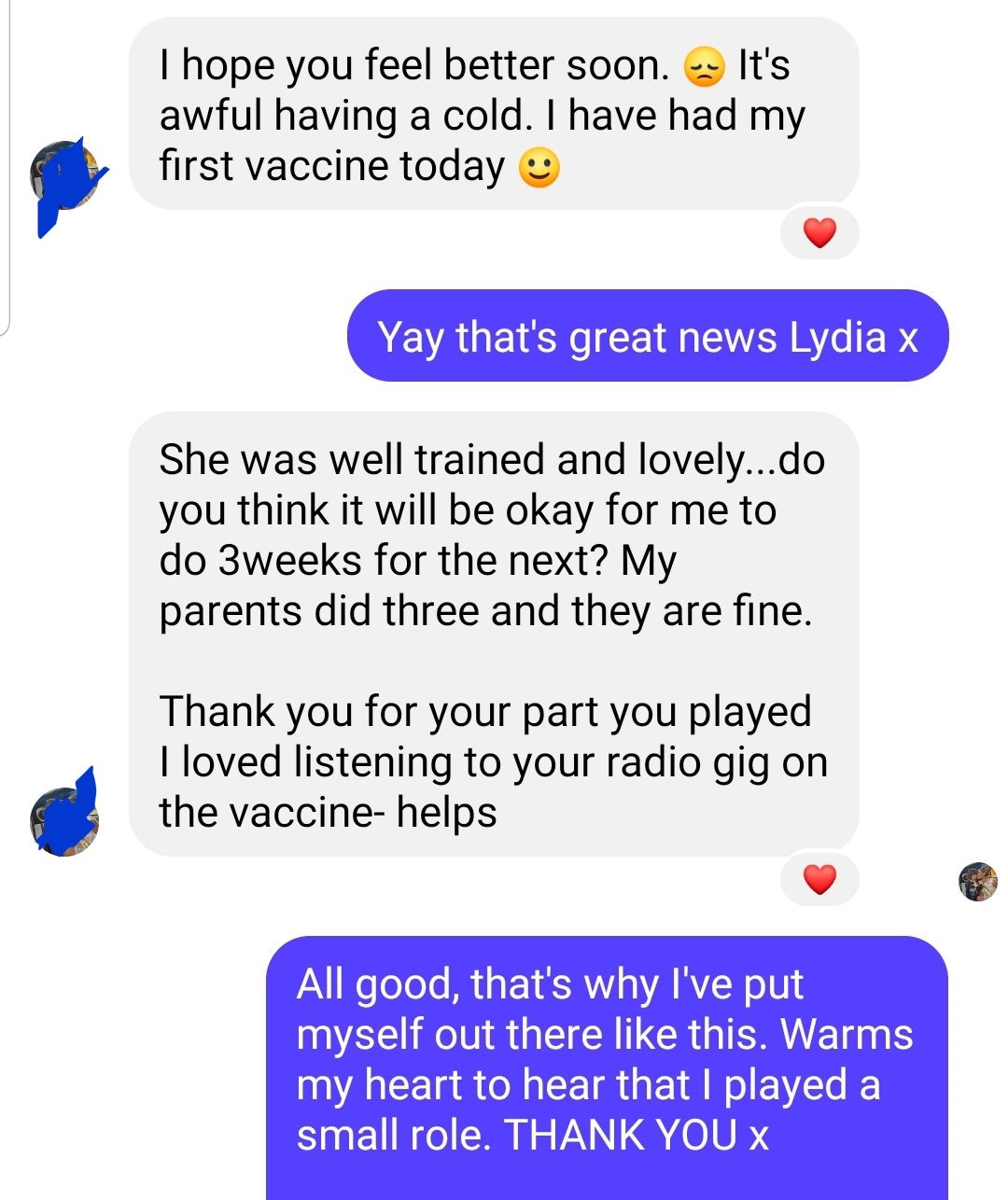
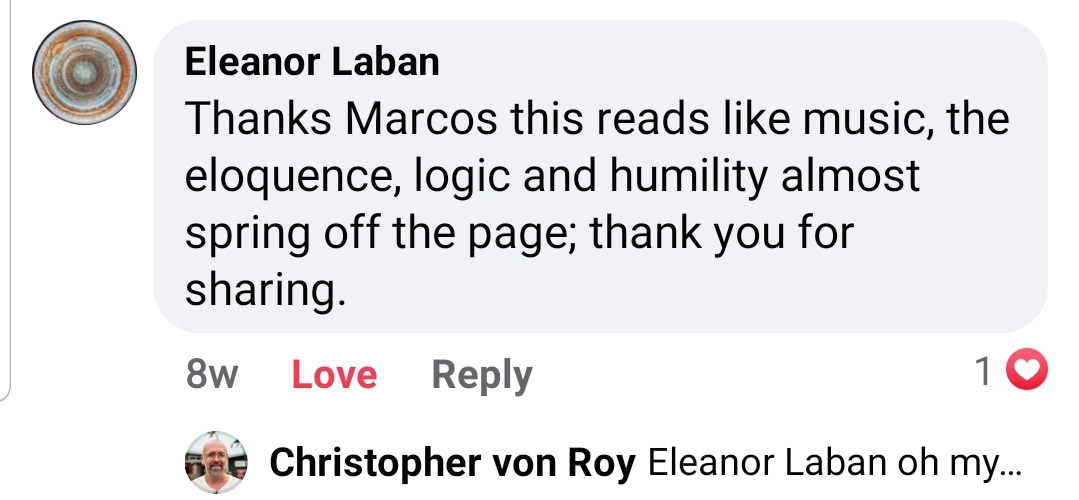
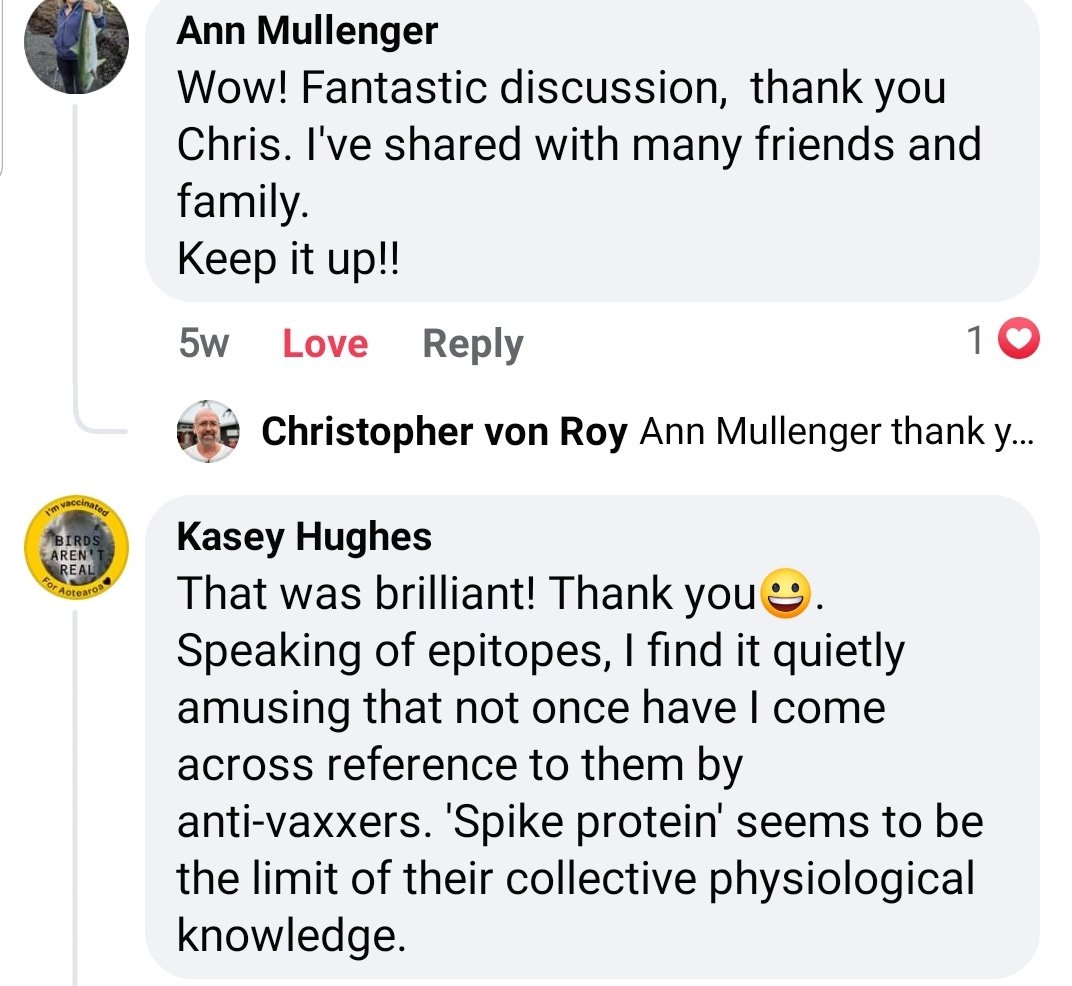
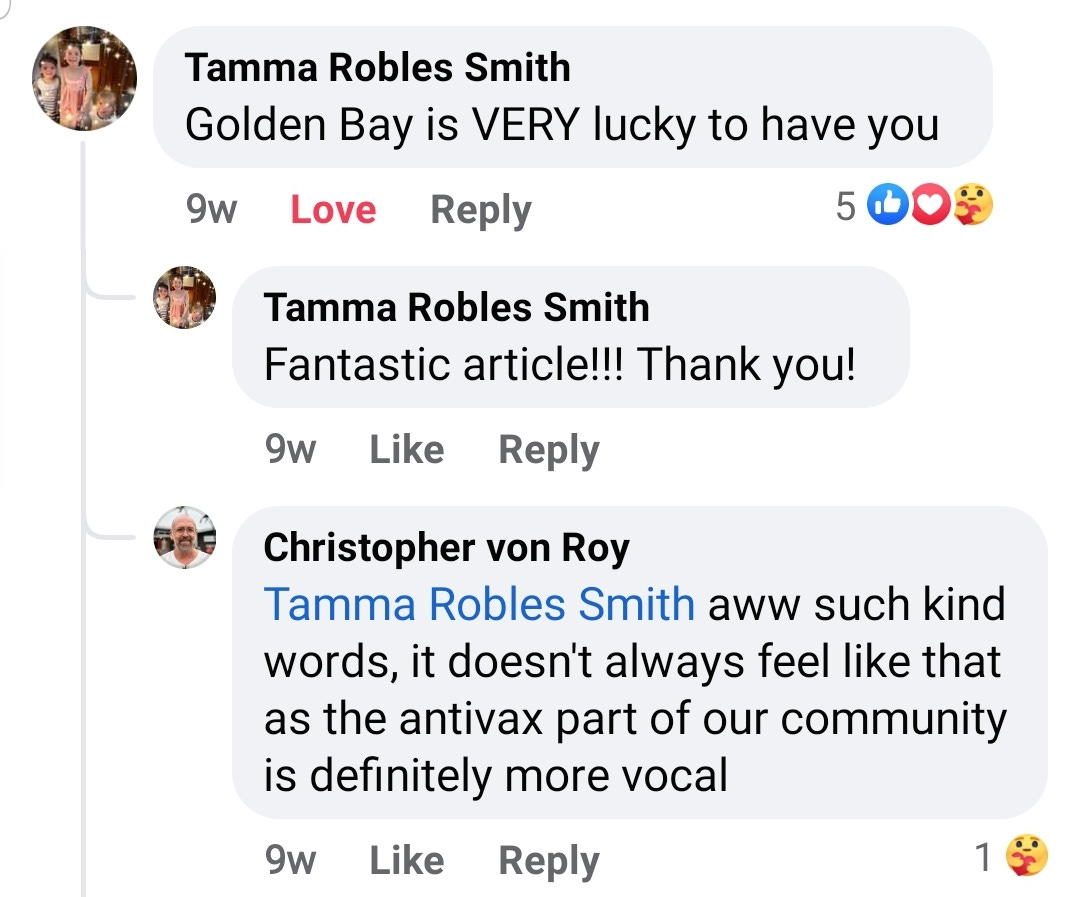

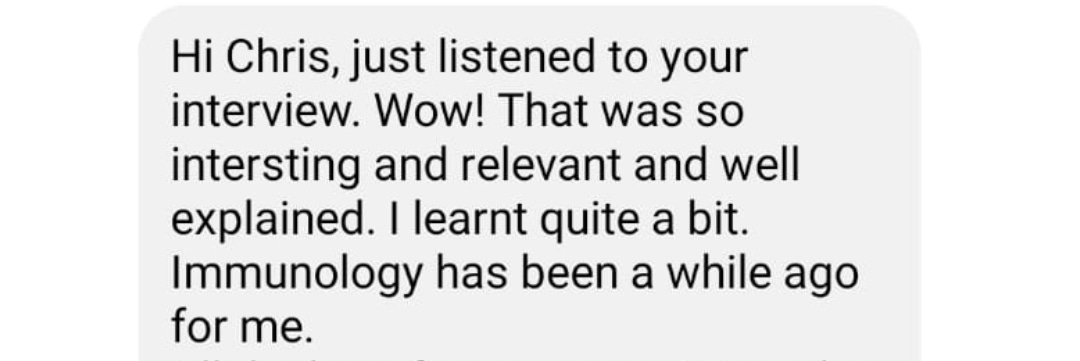

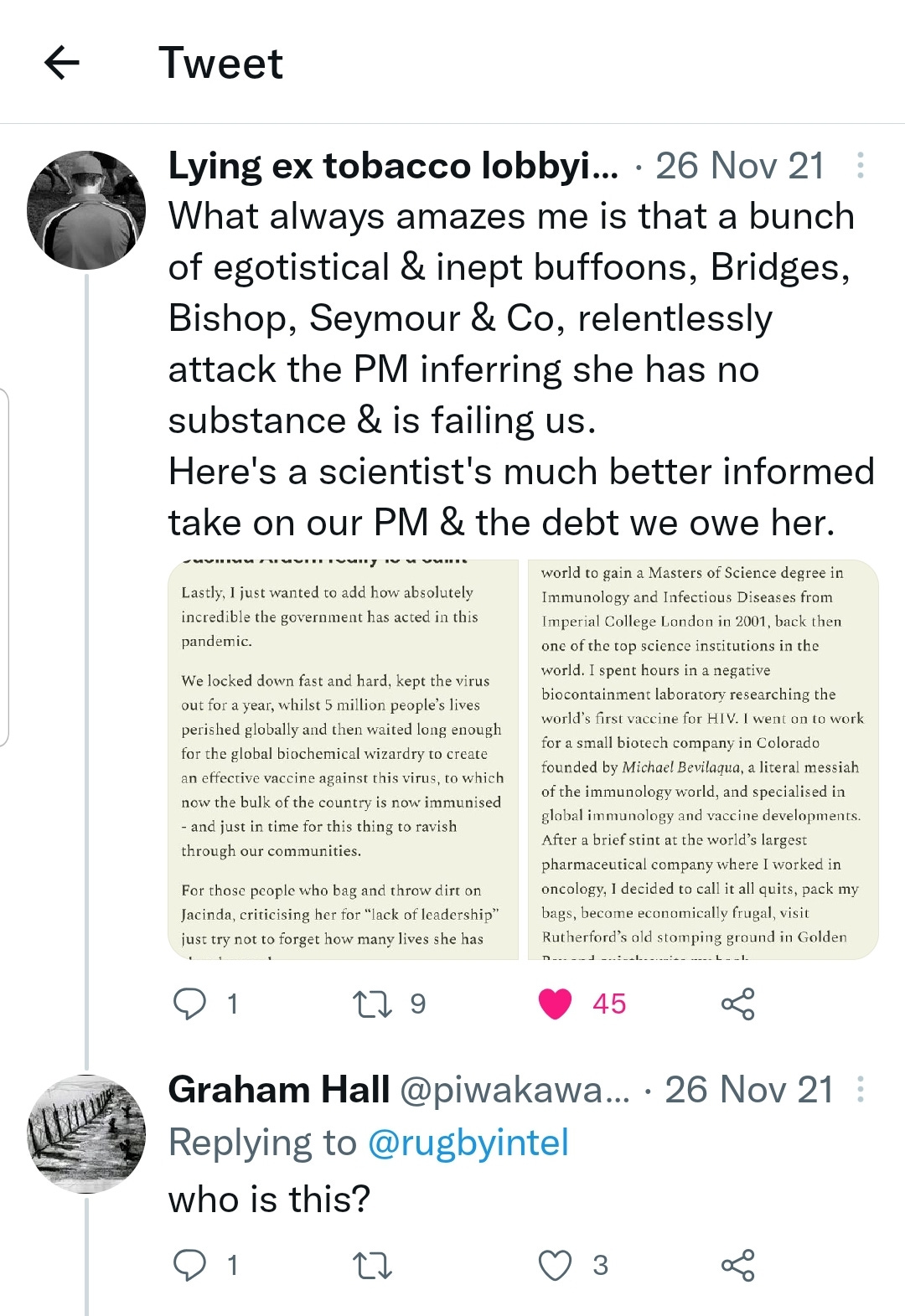




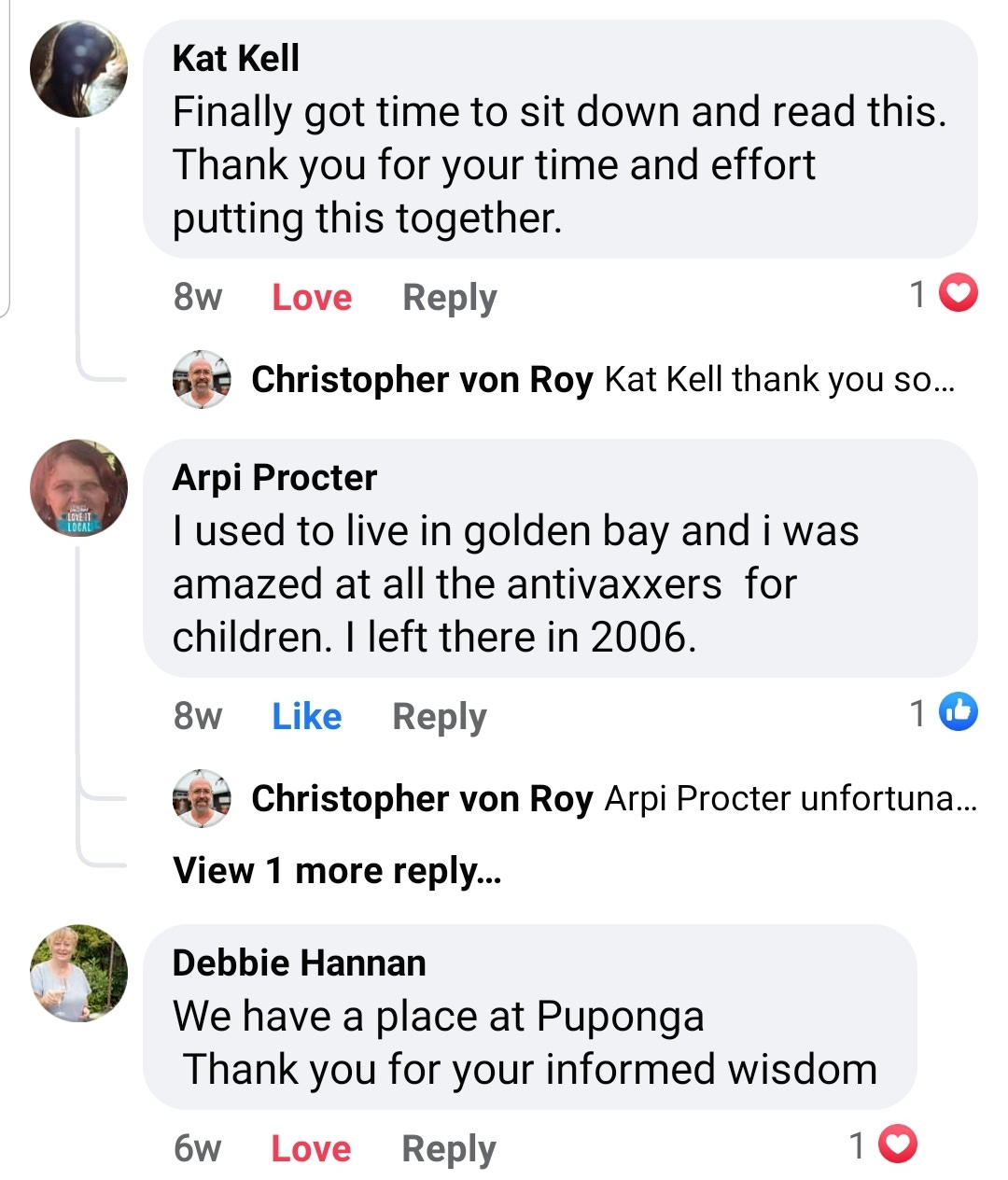


It's lovely seeing the names of people I know (👋 Caroline! 👋 Michelle!) in your post, Chris. And I agree that Mohua Golden Bay is very lucky to have you here.
I have been thinking to myself that you are the kind of person that I would like to hang out with, because I want to better myself. However, this is really selfish of me.
We all need communities-of-support, so that we do not feel exhausted when living with our neighbours. So now I am thinking about how we can build these communities-of-support, so that each of us can learn, grow and develop, and so that we don't all feed off the one expert... 🤔
👍 work!